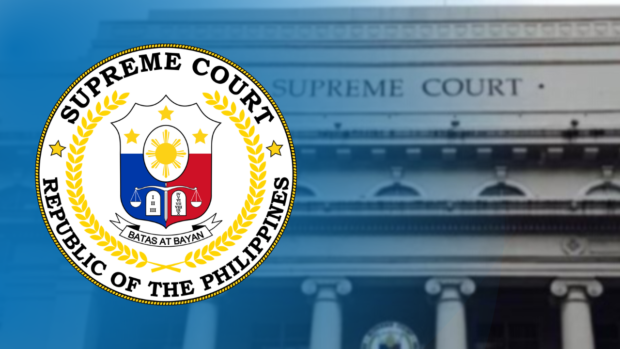Supreme Court urged to review ‘dangerous provisions’ of anti-terrorism law
MANILA, Philippines — Progressive group Bayan Muna urged the Supreme Court on Tuesday to review the “dangerous provisions” of the antiterror law, saying it was being used to stifle dissent.
Bayan Muna chair Neri Colmenares cited the case of Cordillera activists Windel Bolinget, chair of the Baguio-based activist group Cordillera Peoples Alliance (CPA); Sara Alikes; Steve Tauli; and Jennifer Awingan Taggaoa, who were designated as terrorists by the Anti-Terrorism Council (ATC) on June 7 despite the dismissal of related court charges against them.
The tagging was followed by an order by the Anti-Money Laundering Council (AMLC) to freeze their assets and bank accounts, a move described by Colmenares as “a manifestation of the abuse of the Marcos government that can be done using the terror law.”
“This is the real state of the nation today — crackdown on dissenters and the opposition,” he said in a statement. “This is what we have been arguing before the Supreme Court before. That this unilateral power of the terror council to designate will practically deprive the courts of their power to adjudicate and dissenters of their rights.”
Colmenares cited Bangued Regional Trial Court (RTC) Judge Corpuz Alzate’s decision on May 11 to grant the motion to dismiss rebellion charges filed by the military against a community journalist and six activists, including Bolinget, Alikes, Tauli and Taggaoa, saying they were excluded from the information for lack of probable cause. On top of this, the judge ordered the quashing of all arrest warrants issued against the activists.
Article continues after this advertisementIn July 2021, the Davao del Norte RTC also dismissed the murder complaint filed by the Tagum City police against Bolinget who later sued them for damages.
Article continues after this advertisement“Even with these court victories, the terror council is hellbent on designating Bolinget and his companions as terrorists without even presenting any credible evidence to prove their claim. That’s why the government loses its cases in court—because they are fabricated. And the government instead courses it through ATC or AMLC [which it has] control over, leaving the activists with no opportunity to present their evidence,” Colmenares said.
Addressing injustice
“Maybe it is about time that the Supreme Court reviews the dangerous provisions of the terror law to address this injustice,” he added.
Bolinget, Alikes, Taggaoa, and Tauli, brother of former United Nations Special Rapporteur Victoria Tauli-Corpuz, are now exhausting all remedies provided by the law, including a 15-day prescription for contesting a terror tag before the courts after its publication, according to Baguio City Councilor Jose Molintas, one of their legal consultants.
The closest court tasked with handling ATC cases is in Urdaneta City, Pangasinan, but Molintas did not say whether the four activists have filed a petition.
During a public consultation on July 11, the Baguio City Council drew support for a draft ordinance that would “protect the rights and fundamental freedoms of human rights defenders” in the city. It was not clear, however, if it would provide adequate legal shield against those targeted by the ATC.
Under the proposed ordinance, government and private offices in Baguio, particularly law enforcement agencies, must respect activists’ rights to advocate and promote civil liberties, move and assemble, and participate in policy discussions and programs undertaken in the city.
It also protects their freedom from intimidation or reprisal, defamation, and stigmatization, with a provision directing government agencies and employees to desist from branding them as communists, terrorists, and enemies of the state. Violators face fines of up to P5,000.
